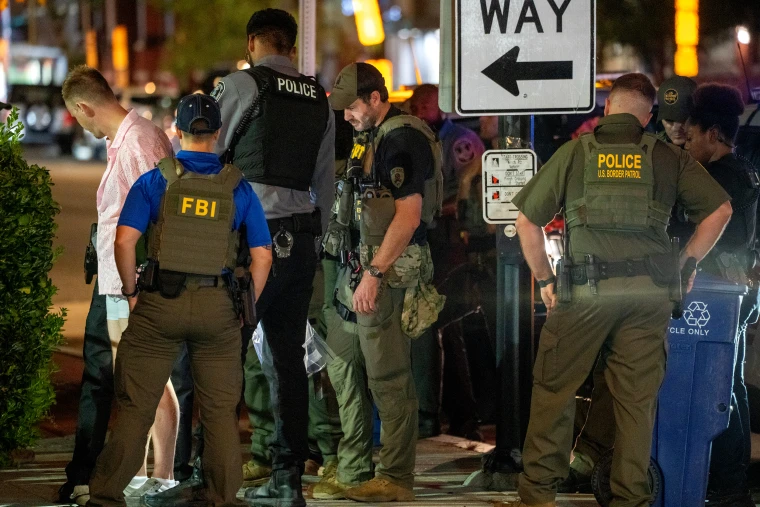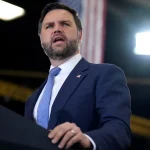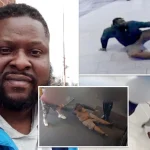The American justice system thrives on a delicate balance between law, politics, and public trust. That balance was tested once again when reports emerged that a federal grand jury in Washington, D.C. declined the Department of Justice’s (DOJ) most recent indictment requests. This decision, which carries major implications for ongoing federal investigations, has sparked debate among legal scholars, politicians, and the general public. While some see the development as a procedural outcome, others view it as a turning point in the DOJ’s broader legal strategy.
- Understanding the Role of a Grand Jury
- The DOJ’s Broader Strategy and Challenges
- Why the Decline Matters
- Political and Public Reactions
- Historical Context of Grand Jury Refusals
- Implications for Future DOJ Investigations
- Public Trust and Democratic Accountability
- Media Narratives and the Battle for Public Perception
- What Comes Next for the DOJ
- FAQs
- Why did the D.C. grand jury decline the DOJ indictment requests?
- How rare is it for a grand jury to refuse DOJ requests?
- Does this mean the case is over?
- What impact does this have on public trust?
- Has this happened before?
- Conclusion
Grand juries are often perceived as institutions that routinely approve prosecution requests. In fact, statistics from the Bureau of Justice Statistics indicate that federal prosecutors secure indictments in the overwhelming majority of cases they bring forward. Against this backdrop, a grand jury refusing a DOJ indictment request is rare and immediately signals political and legal reverberations. To understand why this outcome matters, one must look beyond the surface—examining the history of grand juries, the DOJ’s prosecutorial priorities, the political environment surrounding high-profile cases, and the consequences for both governance and public trust.
Understanding the Role of a Grand Jury
A grand jury does not function like a trial jury. Its purpose is not to determine guilt or innocence but rather to decide whether there is enough evidence to formally charge someone with a crime. Composed of regular citizens, usually numbering between 16 and 23, grand juries meet in secrecy and hear evidence presented exclusively by prosecutors.
Historically, grand juries have been criticized for being heavily tilted toward the prosecution. The common phrase “a grand jury would indict a ham sandwich” reflects the perception that indictments are nearly automatic. Yet, when a grand jury breaks from this pattern, it represents a significant act of independence—reminding the country that jurors are not simply rubber stamps for prosecutors.
In Washington, D.C., where political and legal cases frequently intersect, the grand jury system has taken on outsized importance. Cases involving government officials, political figures, or sensitive federal investigations often pass through the capital’s federal courthouse. That makes the recent refusal particularly noteworthy.
The DOJ’s Broader Strategy and Challenges
The Department of Justice has faced mounting scrutiny over how it pursues cases, especially those touching on politics, public corruption, or threats to democratic institutions. Over the last decade, DOJ prosecutors have increasingly targeted high-profile figures—ranging from corporate executives to government officials—in an effort to demonstrate accountability.
However, the DOJ also operates in a polarized environment where any indictment of a public figure risks being labeled as partisan. Legal experts note that this environment places unique pressure on grand jurors, who may be more cautious about endorsing cases that could be perceived as politically motivated.
Former federal prosecutor Randall Eliason has argued that “a grand jury’s refusal is often not about the strength of the evidence alone, but also about whether jurors believe the government’s case should be tested in open court.” If jurors sense that charges may be premature, unbalanced, or insufficiently compelling, they may reject prosecutors’ requests.
Why the Decline Matters
The decision of the D.C. grand jury to decline indictment requests carries several layers of significance.
First, it highlights the independence of jurors in the face of prosecutorial power. At a time when public trust in government institutions remains low—Gallup polls show only around 20% of Americans express confidence in the federal government—acts of independence within the justice system can restore a degree of legitimacy.
Second, the rejection places the DOJ in a challenging position. Prosecutors invest months, sometimes years, into investigations before presenting cases to a grand jury. A rejection forces them to reassess their evidence, refine their strategies, or potentially abandon cases altogether. In highly visible cases, this can translate into public embarrassment and political backlash.
Finally, the move underscores the unpredictability of legal proceedings involving sensitive issues. In an era where public opinion often expects swift accountability, the slow and uncertain machinery of justice becomes a central theme in the national conversation.
Political and Public Reactions
The refusal has triggered an immediate wave of reactions across the political spectrum. Critics of the DOJ argue that the decision reveals overreach by federal prosecutors, accusing them of pursuing politically charged cases without sufficient legal grounding. Supporters, on the other hand, view the grand jury’s independence as evidence of a healthy system of checks and balances.
On Capitol Hill, lawmakers have split sharply in their commentary. Some Democrats expressed disappointment, suggesting that the refusal may hinder accountability for potential wrongdoing. Several Republicans, meanwhile, hailed the decision as a corrective measure against what they characterize as prosecutorial overreach.
Legal analysts note that the public response mirrors broader divisions in American society. With partisan media amplifying narratives of either prosecutorial aggression or political obstruction, the underlying legal process often becomes overshadowed by political storytelling.
Historical Context of Grand Jury Refusals
Though rare, grand juries have declined to indict in several notable cases. For example, in the aftermath of the 2014 police killing of Michael Brown in Ferguson, Missouri, a state grand jury declined to indict the officer involved—a decision that triggered nationwide protests. Similarly, federal grand juries have occasionally rejected charges in corruption or financial crime cases when they felt the evidence did not meet the required threshold.
Each of these moments sparked intense public debate about the fairness and function of the justice system. The D.C. decision joins this lineage, serving as another instance where grand jurors exercised independent judgment in a way that diverged from prosecutorial expectations.
Implications for Future DOJ Investigations
The refusal may also impact how the DOJ approaches future cases. Prosecutors are likely to become more cautious, presenting only their strongest evidence to avoid another rejection. They may also adjust their strategies in selecting charges, focusing on narrower, more clearly defined legal violations rather than sweeping allegations.
For ongoing investigations, particularly those tied to political figures, the message from jurors is clear: cases must meet the highest evidentiary standards before moving forward. This could slow down the pace of indictments but may ultimately strengthen the DOJ’s credibility when charges are successfully pursued.
Public Trust and Democratic Accountability
At its core, the debate over the D.C. grand jury’s refusal is about accountability. In a democracy, the justice system must balance the pursuit of justice with the rights of the accused and the integrity of public institutions.
When grand juries push back against prosecutors, they remind the public that the system has built-in safeguards. This safeguard, however, also creates tension—particularly when the public demands accountability for powerful individuals. The refusal of indictments, even when justified by evidence, can deepen skepticism about whether the justice system truly holds everyone accountable under the law.
Legal scholar Angela J. Davis once observed that “the power of prosecutors is vast, but not limitless.” The D.C. grand jury’s decision affirms this point, showing that citizen-jurors can limit prosecutorial reach in ways that carry major national consequences.
Media Narratives and the Battle for Public Perception
Media coverage of the refusal has been swift and polarized. Outlets sympathetic to the DOJ emphasize the challenges prosecutors face in presenting complex cases, while conservative commentators frame the decision as a rebuke of prosecutorial excess.
This battle for public perception underscores how legal outcomes are no longer confined to the courtroom. In the digital age, every indictment—or lack thereof—becomes a political story as much as a legal one. The D.C. case is no different, with commentators on both sides seeking to control the narrative in a way that reinforces their broader ideological positions.
What Comes Next for the DOJ
The DOJ now faces difficult decisions. Prosecutors could re-present the case to the same grand jury with additional evidence, convene a new grand jury, or decide to abandon certain charges altogether. Each choice carries risk: pushing forward may reinforce perceptions of overreach, while retreating could be interpreted as weakness.
Ultimately, the decision will depend on both the strength of the evidence and the political calculations surrounding the case. Either way, the episode will likely shape how the DOJ approaches grand juries in the near future.
FAQs
Why did the D.C. grand jury decline the DOJ indictment requests?
Grand juries may decline indictments if they believe the evidence is insufficient, premature, or too politically sensitive. While prosecutors generally succeed in securing indictments, jurors are independent and can reject cases that do not meet their standards.
How rare is it for a grand jury to refuse DOJ requests?
It is uncommon. Federal prosecutors secure indictments in the vast majority of cases—some estimates place the approval rate above 95%. This makes refusals particularly significant.
Does this mean the case is over?
Not necessarily. The DOJ can re-present the case with more evidence, seek a new grand jury, or pursue different charges. However, each path requires careful consideration of both legal and political consequences.
What impact does this have on public trust?
The refusal could cut both ways. Some may see it as evidence of independence in the justice system, while others may interpret it as proof that accountability is elusive when powerful figures are involved.
Has this happened before?
Yes, though infrequently. Notable examples include the Ferguson case in 2014 and certain federal corruption probes where grand juries declined to indict despite prosecutors’ recommendations.
Conclusion
The refusal of a D.C. grand jury to approve the DOJ’s latest indictment requests is more than just a legal outcome—it is a moment that reflects the broader tensions in American governance. At stake are questions of prosecutorial power, judicial independence, political accountability, and public trust.
For the DOJ, the path ahead will require recalibration. For the public, the refusal serves as a reminder that the justice system is not simply a tool of government but a process grounded in citizen oversight. Whether this episode strengthens faith in democratic institutions or deepens skepticism will depend on what happens next, both in the courtroom and in the court of public opinion.











